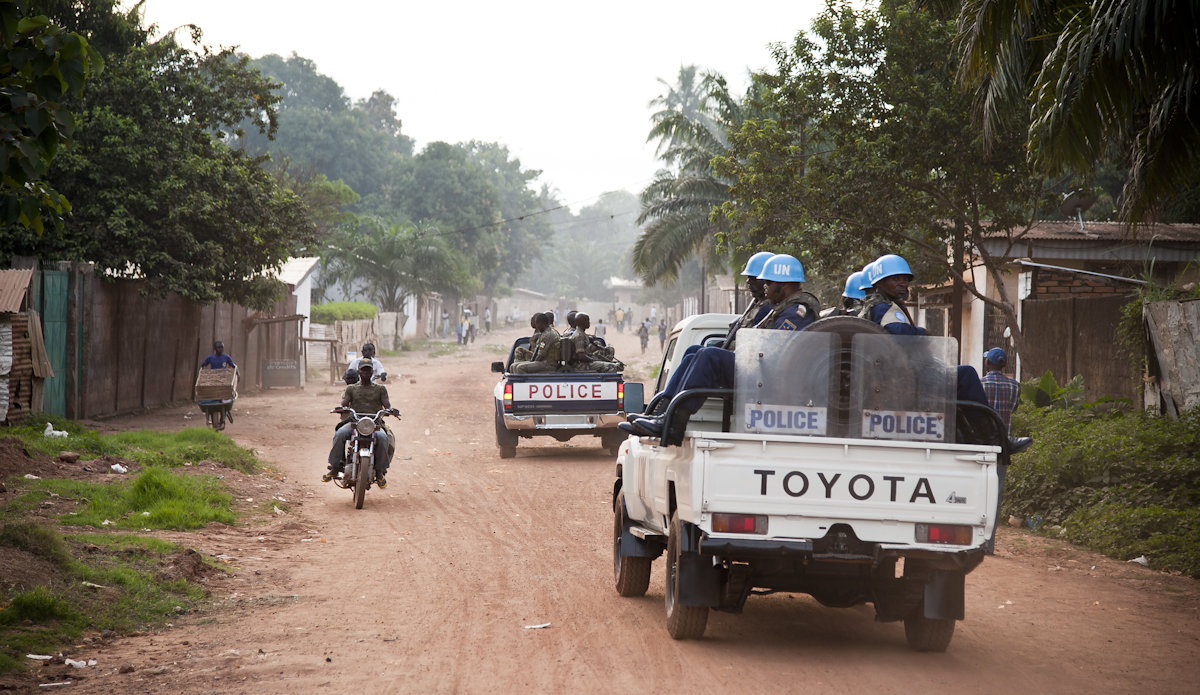Although most United Nations police officers work under a protection of civilians mandate, the United Nations Mission in Sierra Leone in 1999 was the first with a Security Council mandate to protect civilians.
The Security Council has affirmed the central role of the protection of civilians in the work undertaken by United Nations police in its resolutions 2382 (2017, paragraph 6) and 2185 (2014, paragraph 17).
Protecting civilians is a task for every type of United Nations police officer, from Heads of Police Components (HOPCs) and other officers on professional posts, to all Individual Police Officers (IPOs) and formed units including formed police units (FPUs), protection and support units (PSUs) and specialized teams, to civilian experts deployed within police components to all staff in the Police Division.
United Nations Police have a role to play in all three tiers of POC action:
- dialogue and engagement;
- physical protection; and
- establishment of a protective environment.
Dialogue and engagement includes
- liaising with host-State police to advocate for them to undertake their primary responsibility to protect civilians;
- strengthening community-oriented policing approaches; and
- promoting engagement with communities as well as recording and sharing allegations of human rights violations with the human rights component.
Physical protection will generally involve FPUs, given the relevant Directive on Use of Force and the ability of FPUs to act as cohesive units specialized in public order management. Tasks assigned to FPUs take into consideration the fact that they are policing elements and not deployed in situations of sustained use of firearms or military weaponry.
Activities to establish a protective environment are primarily undertaken by IPOs, including:
- building of core policing skills of host-State police services,
- support to strengthen accountability and oversight mechanisms of host-State police services; and
- advice on reform processes that result in increased adherence to the rule of law.
The DPKO/DFS Guidelines on the Role of United Nations Police in protection of civilians took effect on 1 August 2017. The guidelines apply to police components of United Nations peace operations with POC mandates, as well as staff members of DPKO and DFS. Further, they may be useful to police components in all peace operations to inform their broader capacity-building in support of prevention, peacebuilding, and peace sustainment.
Alongside the aforementioned three tiers, the guidelines consider four phases in which activities will be undertaken:
- prevention; pre-emption; response; and consolidation. Prevention includes ensuring a visible UN police presence, training of host State police, supporting development of oversight mechanisms, and supporting the strengthening of the criminal justice chain.
- Pre-emption encompasses advocacy with and provision of advice and support to host State police to extend their presence and ensure rule of law and public order in areas under threat, the conduct of patrols – jointly with host State counterparts, other mission components, and/or unilaterally; and, importantly, proactive engagement and advocacy with host State police or law enforcement whose elements have perpetrated violence against civilians.
- Response includes, inter alia, continuing to undertake efforts with host State police to extend their presence, advice on IHRL and POC adherent policing and direct action by FPUs (use of force).
- Consolidation can include taking steps to combat impunity, support for the restoration and/or extension of state authority and the rule of law, including accountability for violations and transitional justice, and, in conjunction with other mission components and the UN Country Team and Humanitarian Country Team, contributing to creating conditions conducive to the voluntary, safe, dignified and sustainable return, local integration, or resettlement of refugees and internally displaced persons.
The guidelines may be accessed here.

